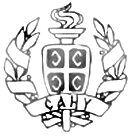Приказ основних података о документу
Russian foreign policy and the Balkans in the 1990s
| dc.creator | Nikiforov, Konstantin | |
| dc.date.accessioned | 2018-11-09T13:17:47Z | |
| dc.date.available | 2018-11-09T13:17:47Z | |
| dc.date.issued | 2007 | |
| dc.identifier.issn | 0350-7653 | |
| dc.identifier.uri | https://dais.sanu.ac.rs/123456789/4266 | |
| dc.description.abstract | In the initial phase after the collapse of the USSR, Russian diplomacy lacked vision and initiative, generally following the West's lead, including its policy towards the Yugoslav crisis (1991-95). It was only from about 1994 and as a result of the decision to expand NATO into Eastern Europe, that it sought to become more synchronized with the prevailing mood in Russian society, increasingly disillusioned with Western policies. There was a change in the phrasing of official statements, but the Russian Foreign Ministry in fact continued to follow the West and supported the severe anti-Serbian sanctions regime. Russia played merely a supporting role in the Bosnian crisis, which led to the withdrawal of Russian peacekeepers. The only Russian initiative in the period was Putin's proposal to hold a Balkan conference to discuss the inviolability of borders and human rights, but it was left out in the open. Recently, however, Russia has become more active in connection with the Kosovo status talks, as a result of her aspiration to translate her newly-gained economic strength into political power, but also of the fact that there are in the post-Soviet territory some unrecognized self-proclaimed states, moreover, for the most part pro-Russian. What is vital for Russia is that she is now seeking to develop a conceptual framework for past events and to prevent any breach of international law in the future. Hence the emphasis on the necessity of laying down 'universal principles' applicable in any situation, not just in the case of Kosovo. Furthermore, a de facto independence for Kosovo, as envisaged by the Martti Ahtisaari plan, cannot resolve the problem of Serbo-Albanian conflict in a sustainable way, and remains a dangerous precedent both regionally and globally. | en |
| dc.rights | openAccess | |
| dc.rights.uri | https://creativecommons.org/licenses/by-nc-sa/4.0/ | |
| dc.source | Balcanica | |
| dc.title | Russian foreign policy and the Balkans in the 1990s | en |
| dc.type | article | |
| dc.rights.license | BY-NC-SA | |
| dcterms.abstract | Никифоров Константин; | |
| dc.citation.spage | 231 | |
| dc.citation.epage | 241 | |
| dc.citation.issue | 38 | |
| dc.identifier.doi | 10.2298/BALC0738231N | |
| dc.type.version | publishedVersion | en |
| dc.identifier.fulltext | https://dais.sanu.ac.rs/bitstream/id/21208/4377.pdf | |
| dc.citation.other | (38): 231-241 | |
| dc.identifier.rcub | https://hdl.handle.net/21.15107/rcub_dais_4266 |

